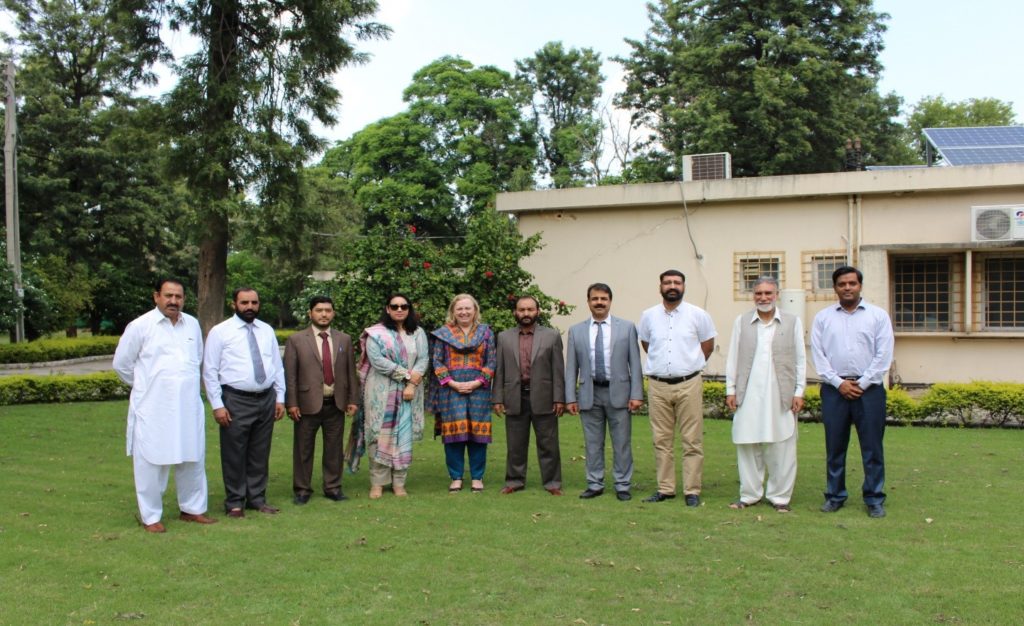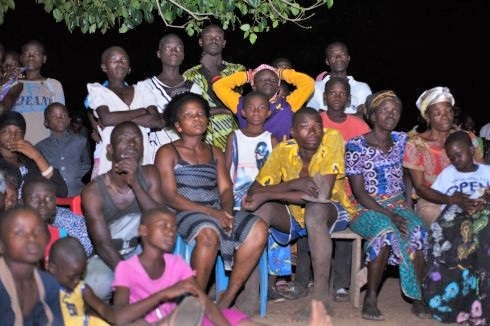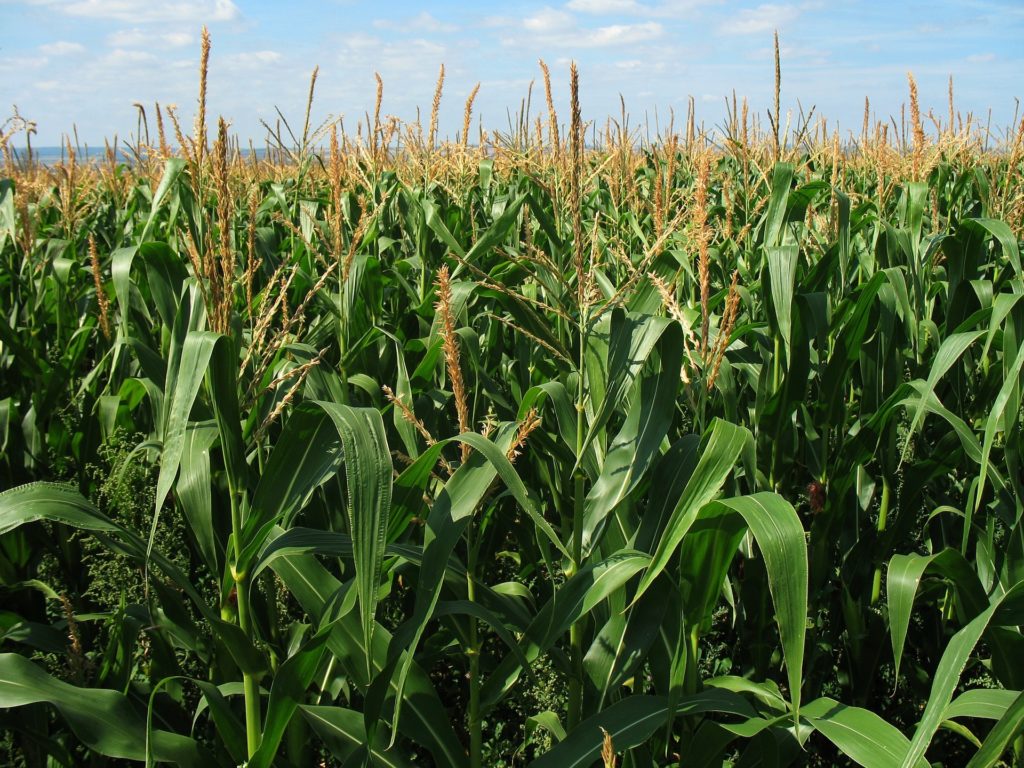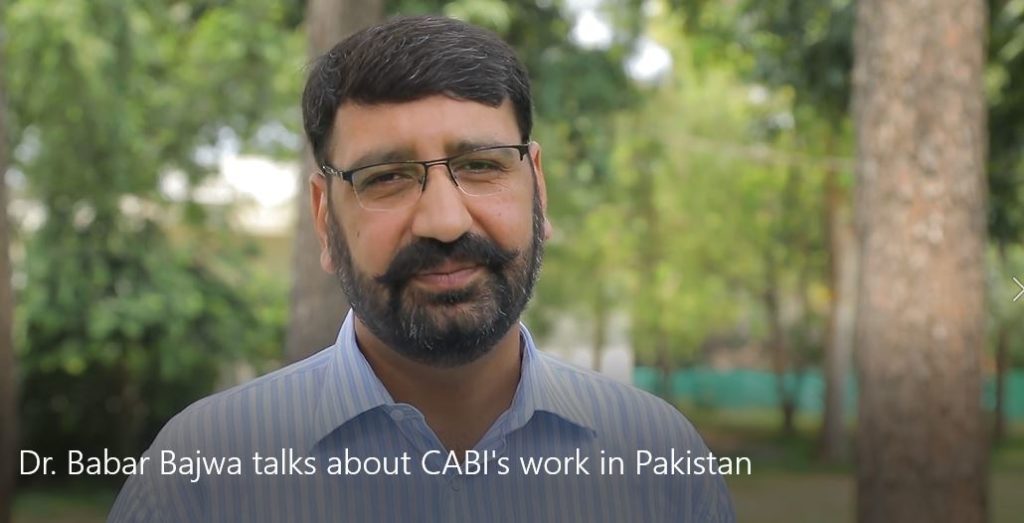New podcast from SciDev.Net focuses on cholera in Cameroon and measles in Democratic Republic of Congo
As part of a series of podcasts funded by the Wellcome Trust and hosted by SciDev.Net Sylvie Akoussan looks at the cholera epidemic in northern Cameroon before shifting her attention to measles in the Democratic Republic of Congo. Her report, in French, asks important questions about the quality of tap water in Africa and whether this…
CABI hands over Phytosanitary Risk Management Programme (PRMP) to provincial stakeholders in Pakistan
By Umair Safdar, Communication Development Executive, CABI Central and West Asia (CABI CWA), Rawalpindi CABI in Pakistan implemented a USAID/USDA funded project ‘Phytosanitary Risk Management Programme in Pakistan (PRMP)‘ from 2014 to 2019. CABI’s scientific team upgraded the infrastructure at the relevant provincial agricultural departments and strengthened the capacity of Pakistan’s current agricultural system so…
Village-based film screenings prove a popular way to reach and inform farming families in Northern Ghana
Duncan Sones, from the CABI GALA communications team, reflects on the first two years of the soybean campaign in Northern Ghana. In the last two years, there have been 346 village-based film screenings of films made by CABI to show farmers how to grow soybean. Take into account the use of Facebook for a music-based…
Finding the farmers of the future: Encouraging youth engagement in agriculture
Special International Youth Day report by Rebecca Quarterman The number of young people involved in agricultural work in East Africa is significantly dwindling in an age of celebrity, quick income and the ‘side hustle’. Quite simply, the future of farming rests in the hands of the youth of today and tomorrow – otherwise agriculture’s vital…
Improving smallholder farmers’ livelihoods and food security through insects for feed
By Solomon Agyemang Duah, Communications Specialist at CABI based in Ghana Poultry farming is practised by almost all smallholder farmers in West Africa but feed and in particular protein sources are becoming increasingly expensive thereby, affecting meat and egg production, reducing family incomes and, ultimately, putting food security at risk. Fish farmers are suffering a…
Safer food in Pakistan through Aflatoxin control
By Dr Sabyan Faris Honey, CABI, and Deborah Hamilton, USDA Aflatoxin, produced by a poisonous fungus, is a serious threat to food security by contaminating many of Pakistan’s agricultural products, including cereal grains, chilies, dry fruits and nuts, and milk. Indeed, the average contamination in wheat and maize in Pakistan, for example, is five and…
Video special: Dr Babar Bajwa talks about CABI’s work in Pakistan
In this video special Dr Babar Bajwa, CABI’s Regional Director – Central and West Asia, talks about CABI’s work towards helping partners achieve the UN Sustainable Development Goals – including ‘Zero Hunger’ and ‘No Poverty’ – in Pakistan. This includes reaching out to smallholder farmers with expert advice on integrated crop and pest management practices so they are better…
Grasshoppers v Orange Juice: insects have nearly as much antioxidant benefit as popular breakfast drink
By Mia MacGregor, CABI A recent study by Professor Mauro Serafini from University of Teramo, Italy, revealed antioxidant levels in multiple, commercially available insects, which proved grasshoppers, silkworms and crickets to be the highest. Found on every continent except for Antarctica, grasshoppers are a staple in the diets of animals all over the world such…
Embracing change – how family farmers can face the future
This year opens the Decade of Family Farming, which aims to improve the life of family farmers around the world. In an earnest discussion, two leaders in the global agriculture community reflect on the challenges facing family farmers, the promises of high- and low-tech solutions, and their hopes for the future. A conversation between Dr…
Engendering a more profitable cotton industry for Pakistan through female empowerment
CABI is helping to engender a more productive and profitable cotton industry for Pakistan through the training of more than 57,000 farmers and farm workers – including these women picture above – as part of the Better Cotton Initiative. The Pak Mission Society teamed up with CABI in the Tehsil Khipro, District Sanghar of Sindh…











